
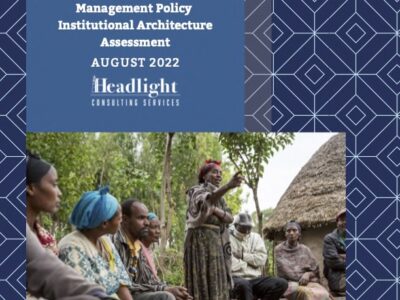
Authors Dr. Yitbarek Woldetensay, Developmental Evaluation Lead – Disaster Risk Management; Yomif Worku, Developmental Evaluation Team Member; Endashaw Asfaw Beshir, Developmental Evaluation Team Member; Esrael Woldeeyesus, Deputy Developmental Evaluation Lead – Disaster Risk Management; Rebecca Herrington, CEO of Headlight Consulting Services; and Chelsie Kuhn, Collaborating, Learning, Adapting, Monitoring, and Evaluation (CLAME) Specialist and Developmental Evaluation
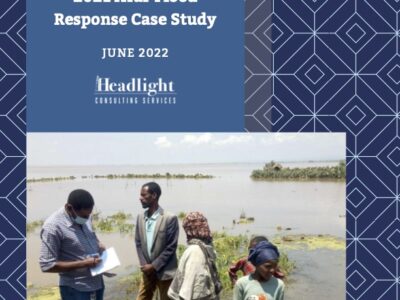
Authors Endashaw Beshir, Developmental Evaluation (DE) Team Member; Tseday Tilahun, DE Team Member; Dr. Yitbarek Woldetensay, Developmental Evaluation Lead – Disaster Risk Management; Julie Mandolini-Trummel, CLAME Specialist; Maxine Secskas, CLAME Associate; Rebecca Herrington, CEO of Headlight Consulting Services; Alison Harrell, CLAME Specialist and DE Administrator; and Chelsie Kuhn, CLAME Specialist and DE Administrator. Description Ethiopia
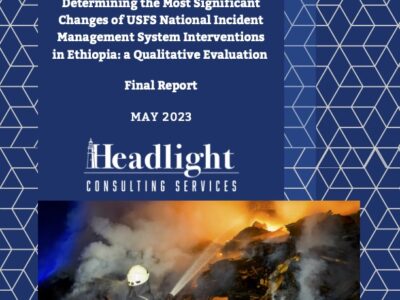
Authors Dr. Yitbarek Woldetensay, Developmental Evaluation Lead – Disaster Risk Management; Rebecca Herrington, CEO of Headlight Consulting Services; Chelsie Kuhn, Collaborating, Learning, Adapting, Monitoring, and Evaluation (CLAME) Specialist and Developmental Evaluation Administrator Lead; and Alison Harrell, CLAME Specialist and Developmental Evaluation Administrator Description The United States Forest Service (USFS) implemented the National Incident Management System
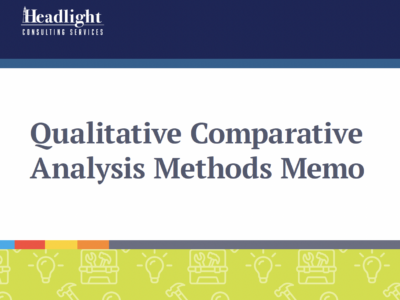
Authors Rebecca Herrington, CEO of Headlight Consulting Services; Chelsie Kuhn, CLAME Specialist; and Alison Harrell, CLAME Specialist Description The Qualitative Comparative Analysis (QCA) Methods Memo is the second in a series of more robust products intended to provide how-to guidance for professionals of all levels to implement stronger CLAME practices. Headlight’s free Methods Memos offer detailed
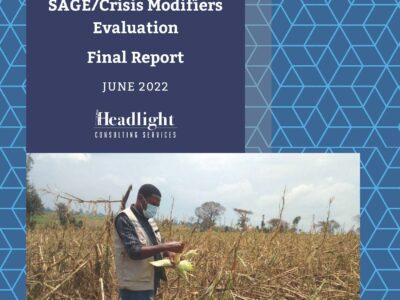
Authors: Esrael Woldeeyesus, Dr. Yitbarek Woldetensay, Yomif Worku, Alison Harrell, Chelsie Kuhn, Rebecca Askin, and Rebecca Herrington Description: The United States Agency for International Development (USAID)/Ethiopia’s Strategic Advisory Group for Emergencies (SAGE) Activity, established in 2020, is working to build evidence on mitigating disasters while continuing to implement development efforts. The SAGE team participated in
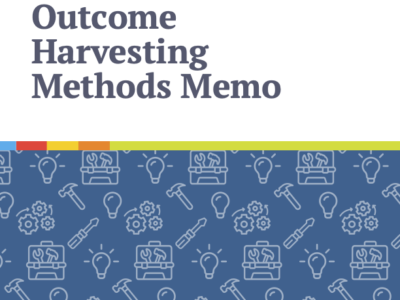
The Outcome Harvesting Methods Memo is the first in a series of products intended to provide guidance for professionals of all levels to implement stronger CLAME practices. Headlight’s free Methods Memos offer detailed how-to guidance, making best practices more accessible so that we can all uphold and contextualize the standards that lead to rigorous evidence
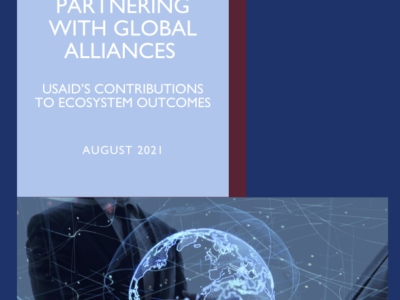
The Digital Financial Services (DFS) team at the United States Agency for International Development (USAID) conducts an annual effort to identify models or examples of success that demonstrate the achievement of the team’s objectives and lessons learned for replication and scale. In 2021, Headlight worked with the DFS team to examine and substantiate outcomes achieved
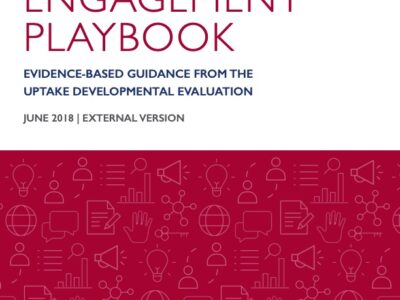
Many Headquarters (HQ) Operating Units at the Agency depend on successful engagement and productive working relationships with Missions. The objective of these partnerships is often to achieve sustained uptake with a given Mission. Sustained uptake is the transference of full ownership and valuation of an innovation, approach, or technical expertise to a Mission, such that
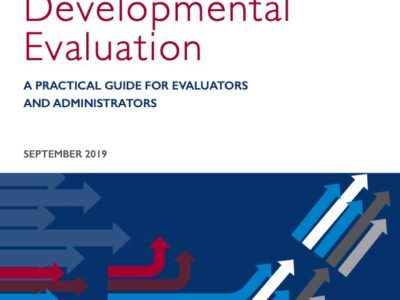
Commissioned by USAID and published in 2019, the Implementing Developmental Evaluation: A Practical Guide for Evaluators and Administrators serves as a How-To reference for those trying to navigate the dynamics and complexities of implementing Developmental Evaluations (DEs). Co-written by Headlight’s CEO Rebecca Herrington along with staff at Search For Common Ground; Social Impact, Inc.; The
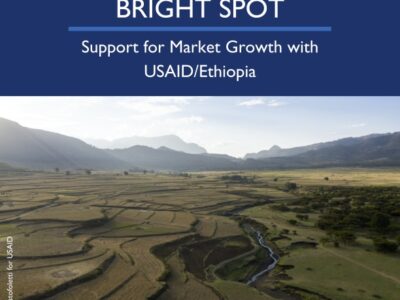
The Digital Finance team has initiated an annual effort to identify models or examples of digital finance support at the United States Agency for International Development (USAID) that demonstrate development outcomes catalyzed by digital finance, improved service delivery, and lessons learned for replication and scale. In partnership with USAID’s Digital Finance (DFS) Team, Headlight co-implemented